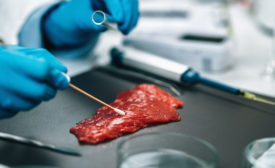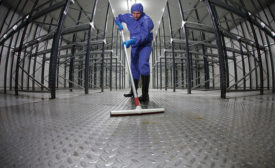Home » Keywords: » sanitation best practices
Items Tagged with 'sanitation best practices'
ARTICLES
Sound interventions must target origins as well as vectors of contamination.
Read More
Product Focus | Metal Detection
Preventive maintenance for metal detectors
What it is and why it’s important.
Read More
Processing Tech
Improved sanitation and design on slicers, dicers and cutters
A cleaner cut: Improved sanitation and design is creating the slicers, dicers and cutters of the future.
Read More
Supplier's Perspective
Food processing plant sanitation: Counting on shift zero preparation
Read MoreFood Safety
Contract sanitation services in meat and poultry plants
Sanitation made simple: The use of contract sanitation services enables meat and poultry plant operators to sidestep the burden of hiring, training and managing workers while ensuring a full complement of cleaning personnel.
Read More
2017 Food Safety Report
Designed to shine?: Sanitary design and construction
Facilities and equipment should be built or bought with sanitation and food safety at the top of the priority list.
Read More
Stay ahead of the curve. Unlock a dose of cutting-edge insights.
Receive our premium content directly to your inbox.
SIGN-UP TODAYCopyright ©2025. All Rights Reserved BNP Media.
Design, CMS, Hosting & Web Development :: ePublishing













